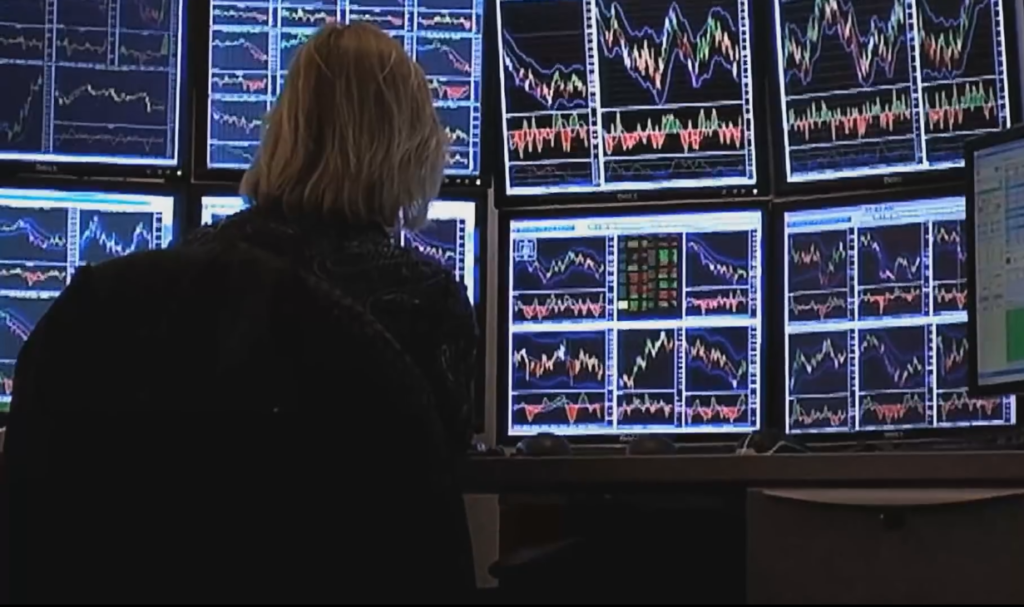
For forex traders to succeed, it is vital to understand the forex spread. It is a measure of the difference in price between buying and selling a currency. A spread of large magnitude indicates that a market is unstable and lacks liquidity. However, a spread of small magnitude indicates a market that's well-liquid.
The forex spread is typically characterized as a number of pips, or pip-sized increments, based on the general supply and demand for the pair in question. The spread can also be affected by market factors like geopolitical instability. Some currency pairs have spreads of 20 or more pips, while others are much larger.
Spreads don't seem to be a significant issue for most traders. However, a good understanding of its effects will benefit both forex and non-forex traders alike. For example, traders can lose profits if the spread is too large. A spread that is too large can cause liquidity problems in trading instruments. This can have a negative impact on its ability to be used by both long-term and short term traders.

Sometimes, the spread is also known as the bid-ask spread and bid-ask differential. This term combines both of these terms. The bid-ask differential is the price at that a forex market maker would be willing to purchase or sell the base currencies. The spread for base currency, the Dollar, is usually lower than it is for any other currencies, even exotic ones.
A forex spread calculator can be a valuable tool that you should keep close at hand. There are many available online. Typically, you'll need to input the number of units of currency you want to trade, the size of your trade, and the number of lots you wish to trade in order to come up with a spread estimate. Fixed spreads are a better option than guesswork when trading forex markets.
You'll need a forex spread calculator. But you also need to look at the chart in your broker’s trading platform. This is where you'll find the spread's major movers and shakes, and which currency pairs you should be watching. It's also important to pay attention to the most important news stories and events that could impact the spread.
Other things to consider include the time of the day that you trade. While the spread is smaller during the early morning hours in the European trading session, the spread is likely to be much higher in the Asian session. The spread is likely to be larger during the Asian session's evening hours when the forex market is most active. If you're traveling to a foreign country, you'll also want to make sure to understand the spread they're offering.

The forex spread is the difference between the price at which a currency pair will be offered and asked for. This variable is crucial in forex trading. It's usually measured in pip. You can use a forex spread calculator to determine how many pips you will need to place a trade.
FAQ
How can people lose their money in the stock exchange?
The stock market isn't a place where you can make money by selling high and buying low. It is a place where you can make money by selling high and buying low.
The stock market is an arena for people who are willing to take on risks. They want to buy stocks at prices they think are too low and sell them when they think they are too high.
They expect to make money from the market's fluctuations. If they aren't careful, they might lose all of their money.
What is a fund mutual?
Mutual funds are pools or money that is invested in securities. Mutual funds offer diversification and allow for all types investments to be represented. This reduces risk.
Professional managers manage mutual funds and make investment decisions. Some funds offer investors the ability to manage their own portfolios.
Mutual funds are often preferred over individual stocks as they are easier to comprehend and less risky.
Is stock a security that can be traded?
Stock is an investment vehicle that allows investors to purchase shares of company stock to make money. This can be done through a brokerage firm that helps you buy stocks and bonds.
You can also invest in mutual funds or individual stocks. There are actually more than 50,000 mutual funds available.
There is one major difference between the two: how you make money. With direct investment, you earn income from dividends paid by the company, while with stock trading, you actually trade stocks or bonds in order to profit.
In both cases you're buying ownership of a corporation or business. If you buy a part of a business, you become a shareholder. You receive dividends depending on the company's earnings.
With stock trading, you can either short-sell (borrow) a share of stock and hope its price drops below your cost, or you can go long-term and hold onto the shares hoping the value increases.
There are three types to stock trades: calls, puts, and exchange traded funds. Call and put options let you buy or sell any stock at a predetermined price and within a prescribed time. Exchange-traded funds are similar to mutual funds except that instead of owning individual securities, ETFs track a basket of stocks.
Stock trading is very popular as it allows investors to take part in the company's growth without being involved with day-to-day operations.
Stock trading can be very rewarding, even though it requires a lot planning and careful study. It is important to have a solid understanding of economics, finance, and accounting before you can pursue this career.
How are shares prices determined?
The share price is set by investors who are looking for a return on investment. They want to make money with the company. They buy shares at a fixed price. Investors make more profit if the share price rises. If the share value falls, the investor loses his money.
Investors are motivated to make as much as possible. They invest in companies to achieve this goal. They are able to make lots of cash.
What is the role and function of the Securities and Exchange Commission
SEC regulates securities brokers, investment companies and securities exchanges. It enforces federal securities laws.
How are securities traded?
The stock exchange is a place where investors can buy shares of companies in return for money. In order to raise capital, companies will issue shares. Investors then purchase them. Investors then resell these shares to the company when they want to gain from the company's assets.
Supply and demand determine the price stocks trade on open markets. The price rises if there is less demand than buyers. If there are more buyers than seller, the prices fall.
There are two options for trading stocks.
-
Directly from the company
-
Through a broker
How do I invest my money in the stock markets?
Through brokers, you can purchase or sell securities. Brokers buy and sell securities for you. Brokerage commissions are charged when you trade securities.
Brokers often charge higher fees than banks. Banks will often offer higher rates, as they don’t make money selling securities.
An account must be opened with a broker or bank if you plan to invest in stock.
A broker will inform you of the cost to purchase or sell securities. He will calculate this fee based on the size of each transaction.
Your broker should be able to answer these questions:
-
the minimum amount that you must deposit to start trading
-
How much additional charges will apply if you close your account before the expiration date
-
What happens if your loss exceeds $5,000 in one day?
-
How many days can you keep positions open without having to pay taxes?
-
whether you can borrow against your portfolio
-
whether you can transfer funds between accounts
-
how long it takes to settle transactions
-
The best way to sell or buy securities
-
How to Avoid fraud
-
How to get assistance if you are in need
-
Whether you can trade at any time
-
How to report trades to government
-
whether you need to file reports with the SEC
-
How important it is to keep track of transactions
-
What requirements are there to register with SEC
-
What is registration?
-
How does it affect me?
-
Who must be registered
-
What time do I need register?
Statistics
- For instance, an individual or entity that owns 100,000 shares of a company with one million outstanding shares would have a 10% ownership stake. (investopedia.com)
- "If all of your money's in one stock, you could potentially lose 50% of it overnight," Moore says. (nerdwallet.com)
- Even if you find talent for trading stocks, allocating more than 10% of your portfolio to an individual stock can expose your savings to too much volatility. (nerdwallet.com)
- Our focus on Main Street investors reflects the fact that American households own $38 trillion worth of equities, more than 59 percent of the U.S. equity market either directly or indirectly through mutual funds, retirement accounts, and other investments. (sec.gov)
External Links
How To
How to create a trading strategy
A trading plan helps you manage your money effectively. It helps you understand your financial situation and goals.
Before you create a trading program, consider your goals. You may want to save money or earn interest. Or, you might just wish to spend less. You might want to invest your money in shares and bonds if it's saving you money. If you're earning interest, you could put some into a savings account or buy a house. And if you want to spend less, perhaps you'd like to go on holiday or buy yourself something nice.
Once you know your financial goals, you will need to figure out how much you can afford to start. This depends on where your home is and whether you have loans or other debts. It's also important to think about how much you make every week or month. Your income is the amount you earn after taxes.
Next, you will need to have enough money saved to pay for your expenses. These include rent, bills, food, travel expenses, and everything else that you might need to pay. All these things add up to your total monthly expenditure.
You will need to calculate how much money you have left at the end each month. This is your net available income.
Now you've got everything you need to work out how to use your money most efficiently.
To get started with a basic trading strategy, you can download one from the Internet. Ask an investor to teach you how to create one.
Here's an example of a simple Excel spreadsheet that you can open in Microsoft Excel.
This shows all your income and spending so far. It also includes your current bank balance as well as your investment portfolio.
Another example. This was designed by a financial professional.
It will allow you to calculate the risk that you are able to afford.
Remember, you can't predict the future. Instead, think about how you can make your money work for you today.